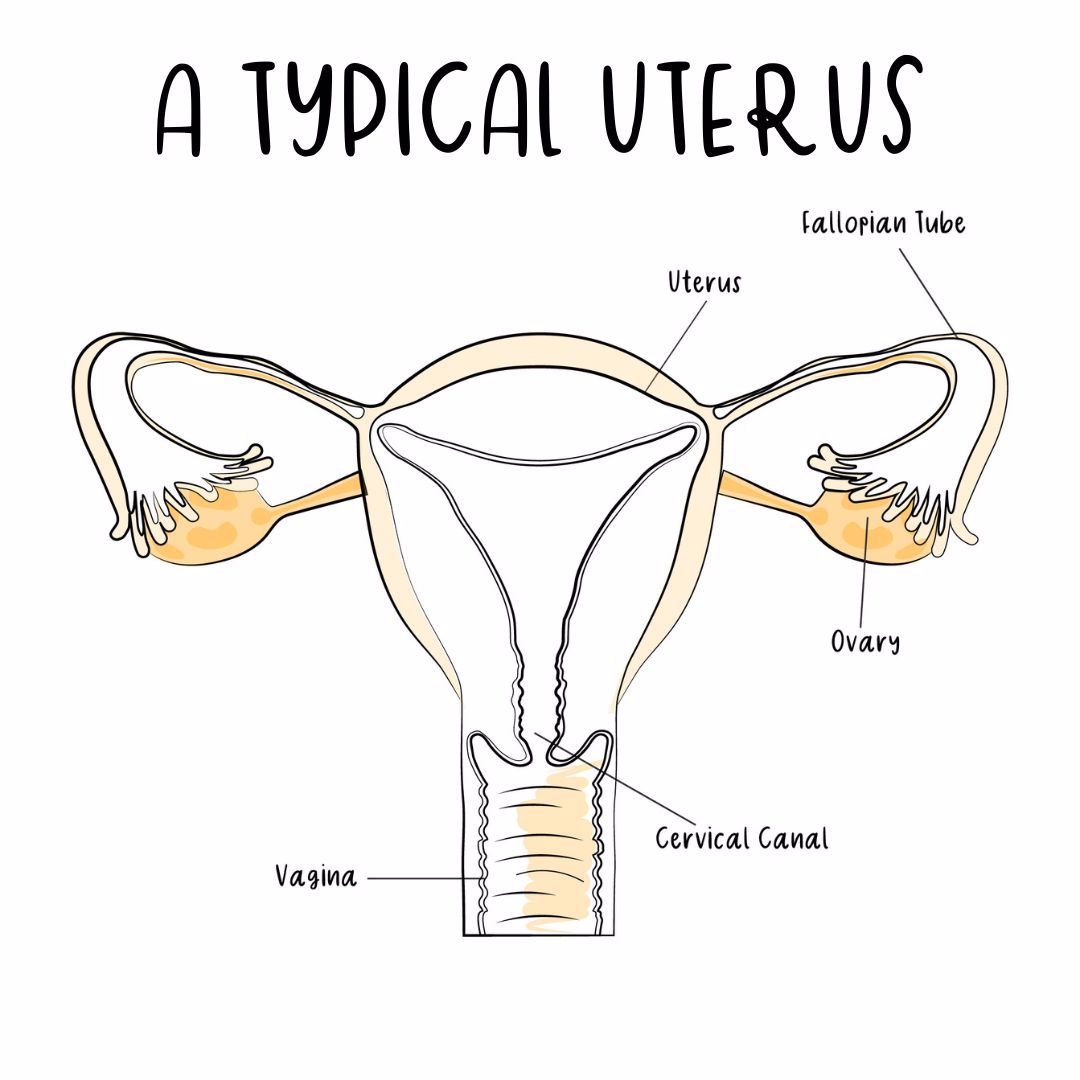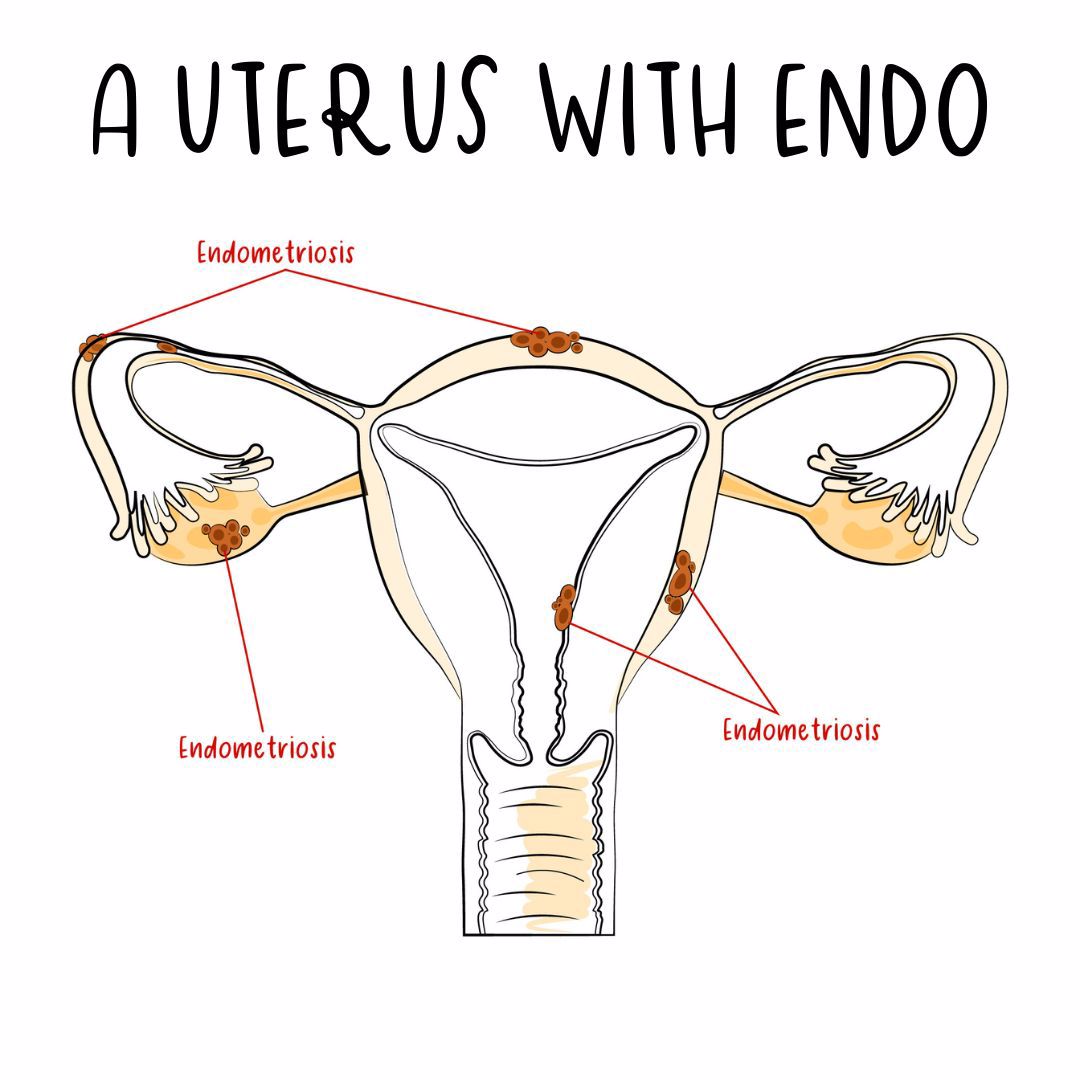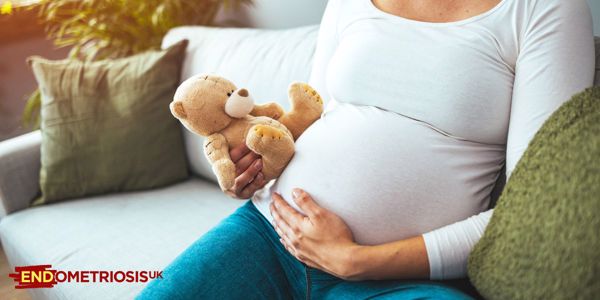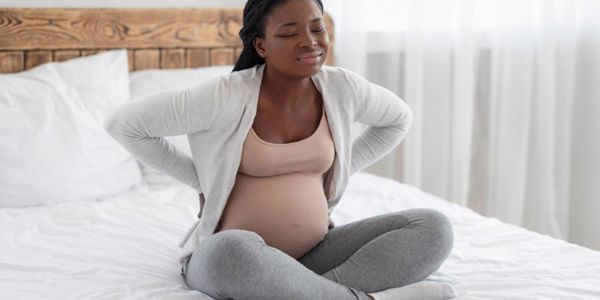Endometriosis is the name given to the condition where cells that are similar to those in the womb are found elsewhere in the body. The condition affects 1 in 10 women and those assigned female at birth, which is a similar number to those affected by diabetes.
Endometriosis cells react in the same way as cells in the womb, but the main difference is that there's no way for them to leave the body during a menstrual period. If you're looking for some more information on what endometriosis is, what the symptoms are, and how it can affect pregnancy, we've got you covered here.
What is Endometriosis?
Symptoms for endometriosis differ between each person, and there is no singular symptom that is 'most common'. It can also cause issues with fertility, but this isn't true for every person and only tends to affect those with severe endometriosis.
Endometriosis appears outside of the pelvic cavity in up to 12% of cases. However, there are several different types of endometriosis:
- Superficial: found mainly on the pelvic peritoneum
- Cystic ovarian: found in the ovaries
- Deep: found in the recto-vaginal spetum, bladder and bowel
It is important to note that endometriosis is not an infection, is not contagious and is not a form of cancer.


What is Endometriosis Action Month?
Every year, Endometriosis UK champion a campaign to raise awareness, demand change and show support for the 1.5 million people who currently have endometriosis. As it's currently an area which is underresearched, many people go undiagnosed for too long.
Currently, it is the second most common gynaecological condition. However, it takes an average of 8 years to get a diagnosis, and the only way to formally diagnose it is through laparoscopic surgery.
"Endometriosis Action Month is an important opportunity for people across the UK, and around the world, to show their support for everyone affected by endometriosis and to demand change." - Faye Farthing, Head of Campaigns and Communications at Endometriosis UK.
How Can It Affect Fertility?
Endometriosis does not necessarily cause infertility, but there is an acknowledged association with fertility problems. Due to the lack of research, the link between endometriosis and fertility isn't fully understood at this time - studies show that laparoscopies are beneficial for pregnancy rates for those with superficial endometriosis, but there is little research for deep endometriosis.
Natural conception is still possible, even for those who have severe endometriosis, and 60-70% of people with a diagnosis are able to get pregnant spontaneously and have an uncomplicated pregnancy. But, for those who struggle with fertility, medical assistance is available in the form of laparoscopies or assisted reproduction medicine and technologies such as IVF.
If you're experiencing problems with fertility, speak to your doctor or a fertility specialist to discuss what options are available for you.
How Does Endometriosis Affect Pregnancy?
Although there is a good chance of natural conception, there are several potential complications with endometriosis and pregnancy, too, including an increased risk of miscarriage. For those who don't have endometriosis, the chance of miscarriage is one in five; however, for those with it, this rate is one in four.
Also, the risk of having an ectopic pregnancy is significantly higher. Usually, the chance of an ectopic pregnancy is 1 in 80-100, but with endometriosis, this is more than doubled.
Some doctors claim that getting pregnant will cure endometriosis, and although your pain may improve during pregnancy, it will not go away. Symptoms are likely to return once you've given birth and your period returns.
If you would like to learn more about endometriosis and fertility, check out this webinar by Endometriosis UK.
What Are the Symptoms of Endometriosis?
Symptoms of endometriosis vary from person to person, and the severity of endometriosis does not always correlate to the amount of pain a person may be in.
If you're experiencing the following symptoms, contact your doctor to discuss them:
- Painful periods
- Pelvic pain
- Pain during or after sex
- Pain when urinating
- Infertility or difficulty getting pregnant
- Painful bowel movements
- Fatigue
There are a wide range of symptoms which may indicate endometriosis, check out Endometriosis UK's list here.
The symptoms, however, may not necessarily be endometriosis, so it's important to speak to a professional for a formal diagnosis and medical advice. Due to a lack of research, endometriosis often gets undiagnosed or misdiagnosed, particularly as some symptoms overlap with similar chronic conditions such as adenomyosis.
This Endometriosis Action Month, check out Endometriosis UK to see how you can get involved. Or, take time this month to show support to your loved ones who are experiencing this condition.





